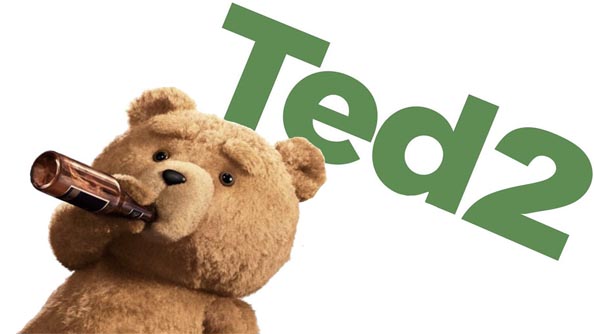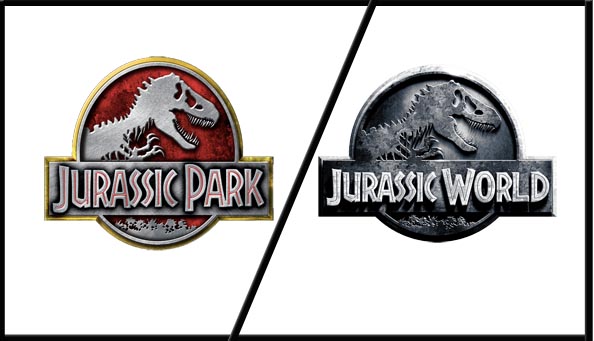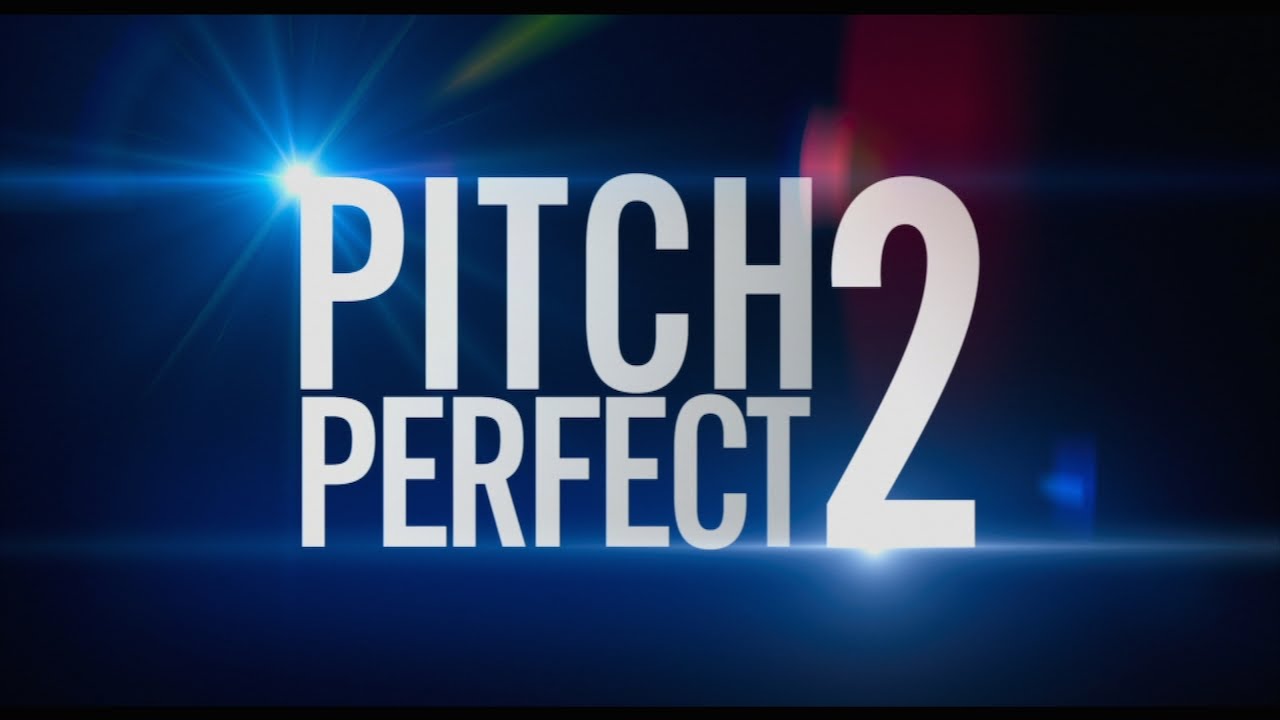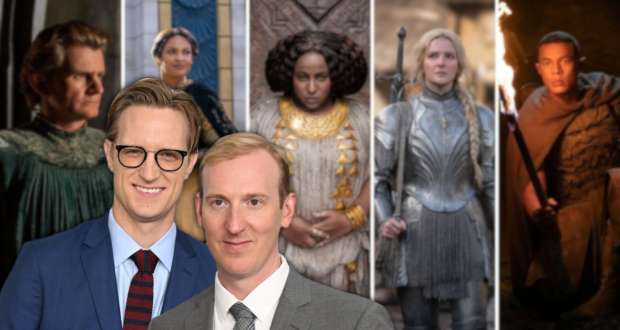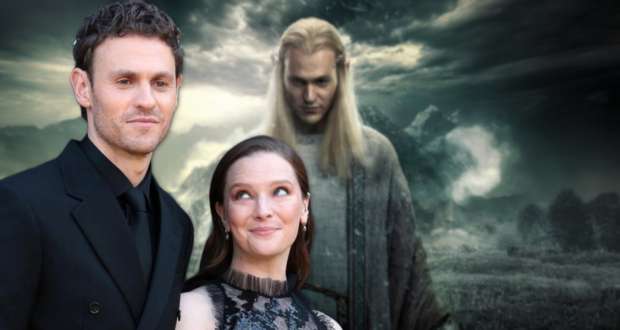
Pretty Rosebud is a film catching a lot of buzz on the indiewire right now. Screenings have been selling out and audiences seem to be very pleased overall. I had the chance to speak with Director Oscar Torre and the film’s star and writer Chuti Tiu about everything from the film’s inception to the mechanics of finalizing Pretty Rosebud. Take a look at the trailer below and then read what they had to say.
Ryan: So, let’s talk about Pretty Rose Bud. Can either of you give a brief synopsis from your perspective.
Chuti: Ok. Basically Pretty Rose Bud is about an unhappy, career driven, woman who is stuck in a smothering marriage that’s gone stale. And she has pressures from her family, her spouse, her parents, her culture, her religion and her work. [She is] supposed to be a perfect wife, future mother, worker, etc. and she crumbles under the pressure. She starts breaking societal taboos and making questionable decisions all in her search find what truly makes her happy.
Ryan: So, I’m curious about the title. How is the title of the film determined?
Chuti: Well, pretty rose bud is the nursery rhyme that the lead character cindy and cindy’s mom sings, (just once), in the film and its neat because it’s a nursery rhyme that talks about growth. And that’s, basically to sum it up, that in order for a pretty rose bud to grow into a fully blossomed rose it needs to grow. And funny enough that’s what Cindy, the main character, has to do throughout the film is learn to grow and learn to listen to her own voice.
Ryan: That’s very interesting and an interesting way to tie in the theme as well. So, Chuti you wrote the film and you star in it. As you said, it focuses on a woman kinda feeling trapped. Maybe inhibited by the monotony of life. As a female, and writer, yourself why do you think that sexual expression has become a common act of rebellion and release for women in these types of main characters.
Chuti: Now that’s interesting that you should mention that idea of it being a common act of rebellion. I am not sure how common it is because I… it’s interesting. I know that there are [some] coming of age stories or what have you where people may be experimental sexually, or whatever, to find themselves. But especially because this is done within the kinda package of a marriage and that character, the wife, who does the stepping out as opposed to the husband stepping out. I felt it was a different story than what you typically see portrayed in the media. I think it’s changing but I know it’s a very typical story too… you know for example “The Good Wife”…
Chuti: Then there’s a movie that’s out right now, The Other Woman with Cameron Diaz, which has the guy cheating on the chick. And so, I felt that I wanted to kinda express a different angle on sexual relationships.
Oscar: And I think this film is also the reversal of roles that I found interesting. The husband is unemployed. She’s more interesting than he is. He’s the one that’s home, so I found that interesting because I don’t know if I had seen it put that way before.
Ryan: And I can definitely see where its more empowering for a woman moreso as well, it just kinda raises the question to me that if the main character were a man do you think the film would have a risqué sense that it does and do you think the character would be held to maybe the same level of scrutiny from society? I know that’s a common issue with male and female.
Oscar: You hit the nail on the head.
Chuti: You definitely did Ryan, actually. That’s why I wrote it like this because Cindy could have use another form of escape, lets say ‘Alcholism’, being a shopaholic…being a workaholic, something.
Oscar: You mean the crux, that whole fight.
Chuti: Yeah, exactly. Running to her girlfriends or what have you. This felt like a story that needed to be told because we know it happens it’s just I never saw it expressed. I think its more rare. I shouldn’t say never, it’s interesting when doing research while writing the script I think I said “There’s gotta be more stories”. Because I just wanted to make sure I didn’t copy anybody, you know I wanted to have a best requested and best plot and there were very few on which to draw. You know Ryan, you did hit the nail on the head. I think there’s a different set of standards that men are held up to and women are held up to. And not just in the sexual arena but definitely when it comes to cheating. And men even, for example the whole thing of cooking in the marriage and who is the bread winner and that’s one of the other things that is addressed in the film is that Cindy and her relatives they’re all… you know they’re having children and she doesn’t feel that she can because she’s the bread winner. Her husband is just unemployed and not doing anything . And it just makes for a very challenging time for that main character.
Oscar: I think there’s a certain… also the way we explored in the film when she’s stepping out on the marriage it’s not something she can share with friends or… there’s a certain isolation and I think there’s a double standard for that.
Oscar: While we were shooting the film, actually, a funny thing happened to me while we were shooting the film. I caught, I don’t know if you know this but we’re married Chuti and I…
Ryan: Oh, no, I didn’t.
Oscar: oh ok, we’re married. I directed the film and she wrote and starred in it. So one day I’m on the phone with her and I called her Linda. That’s my nickname for her. Which is her name, Linda, which also means in Spanish “Beautiful/Pretty”.
Oscar: But, I was talking on the phone in front of a friend of mine. And he heard me say “Linda” so he thought I was talking to a different woman…
Oscar: And his look… the look on his face like “huh.. hey, what’s going on man?” Almost like he wanted me to share the gossip and almost like he was celebrating like “Hey! Heeeeey!! You got somebody else also!” That kind of thing. And of course I explained to him “no, no… that’s what I call Chuti. I call her Linda. And right away he’s like “oh, no no no. Just wanted to make sure right, you know that’s wrong of you. But that wasn’t the way he was asking me at first. And it made me think because we were working on the film and it made me think of the double standard. I wonder what it would have been like if a woman thought that Chuti was cheating on me. If she would have had the same “heeey! Way to go”. I think it probably would have been a little different.
Chuti: Yes, it would have been different but more judgemental or shame attached to it and that’s definitely something that we wanted to highlight.
Ryan: Yeah, its definite display of the gender divide. Chuti, as writer and the main character how much of yourself would you say that you put into the role? How much can you relate to the main character? What aspects of your own life could you see that relate to that character?
Chuti: now im going to quote, I believe it was Jack Nicholson, I forget…
Oscar: 75 percent…
Chuti: 75 percent, yeah, it’s Jack Nicholson…Oscar and I are constantly talking because we’re both actors and we love talking about our process. Jack Nicholson said something to the effect that 75 percent of any character is you. You can find them in you because it’s a universal experience. You get it. There’s something in your own life that you’ll really be able to relate to. And then around 25 percent where you literally have to go outside yourself, outside your sphere of experience, and do research. Use your imagination, make it up. Whatever. So that you could really really hone the character to essence. Now, because I wrote it I think that the percentage was probably a little higher in terms of what I was truly able to relate to. Especially the cultural aspects… you know, I drew as a writer very much on my culture. What I saw going on around me. In fact I have to tell you quite a number of my Asian friends were just laughing because they could totally relate. They’re like “Oh my gosh! I know that character! I know that kind of person in my family”. You know what I mean? That was actually a joy to write.
Oscar: But I got the same. My background is Cuban, but I got the same thing from my friends they’re like “Hey, that’s my family right there”. Which, in her case, is an Asian family but I think it’s a universal theme when it comes to family and of course the portion. I think it’s very universal the dynamic of the family. And while I enjoyed about the script when I read it, when I was deciding if I was gonna direct it, was that even though there’s some things about the parents that you know senior person, it’s not stereotypical. The father is not the stereotypical father that you see a lot of times in… that I’ve seen in some Asian films are very stern, no sense of humor, set in the old ways, and yes it does have some of those elements but at the same time the guy is funny and he likes the way… he’s the loudest voice in the party…
Chuti: He loves to sing karaoke. Tell wild jokes.
Oscar: the mom is quiet but at the same time you can tell she’s probably wearing a mask at the end of the day. Which I think is more realistic. At least where I come from.
Chuti: Yeah. There are so many more complex layers to each character as opposed to just the stereotypical mom and dad. And in fact, at the screening that we had in Miami. In fact all of our screenings have been sold out, which has been incredible. Los Angeles, Miami, Milwaukee, Chicago, and Salt Lake City. At the screening in Miami I… literally, some of… I told one person’s cousin that I know this is about a Asian family but really that’s my family. And this person was totally white, they were Cuban American, it was pretty neat to hear that it resounded so universally.
Ryan: Well, Oscar, I need to ask you is the family aspect what drove you toward directing this film being your directorial debut.
Oscar : What about it is that I’m an actor first and foremost so what interested me was the relationships in the film. The dynamics of the relationships including the parents. As a character, telling the story from the characters point of view. Her world. I think that’s what intrigued me to explore as a director.
Ryan: Well, as an actor and a director in this film would you say there was difficulty transitioning between the two. Especially with this film being your directorial debut?
Oscar: Was it difficult to direct myself or just make the transition in general?
Ryan: Lets go with both.
Oscar: Ok. I think the challenges I that I had as a director were probably many of the challenges many directors have. Just in general, you know, things that come up when you film. I had never directed before but luckily I’ve been blessed to have been working as an actor for a while now. And I have worked for a lot of good directors. So I would say that was pretty much my film school
Oscar: Being in a lot, seeing and taking notes of what works and what doesn’t work. What I enjoyed from the directors that I have worked with. And what I didn’t enjoy or when something went wrong you learn more about that than “what wrong, why did it go wrong, oh maybe you could have done this…”. And I tried to bring that to my process as a director. And then of course my strength is that I’m an actor. So I know actors and I know how to talk to actors and at the same time I know when to be quiet. I think that’s an advantage maybe I had as an actor knowing when to be quiet, knowing when not to give direction.
Oscar: Let the actors find their own way. So I think… I do a lot of prep. I know it’s my first film so I did a lot of prep overall, all angles to try to anticipate the things that surprise me. And that gave me the freedom when things go according to plan which you need to plan on because that always happens on a set. Be ready to be able to deal with that. And I think that putting a good team around me, I knew that would be key. You know when I say ‘Good team’ it’s a good team. Not only a good team of the most talented people I could get on the crew but the most talented people I could work with. I’ve been… and that’s one thing I was very certain of. I’ve been on a lot of sets that involved people on the set that lost control of their cinematographer and we realize “who’s directing this film, the director or the cinematographer?” and I definitely wanted to make sure that was not going to happen to me.
Oscar: So I think that was part of the process. Making sure you are hiring the right people. Not only the right people for your film, but the right people for you.
Ryan: Sure, definitely.
Oscar: But yes, I think that made life easier for me. Of course there’s always the challenges of directing a film that’s low budget and all that but that was never something that… and I made it a point to tell the crew that that would never be an excuse in the making of this. I’ve been on sets, also low budget stuff, and they said ‘oh, this is low budget’. And I said “I don’t want to hear that because when an audience goes to see a film they don’t care what your budget is. The movie is either good, or not”. They’re not gonna say, “oh it was okay for the budget.” No, when you’re paying for a film you don’t care what the budget is.
Ryan: Well, let me ask you both a very cliché question but its always one that’s rather interesting for me. For both of you, if you could describe Pretty Rose Bud in one, or a few, words how would you describe it?
Oscar: The story of a woman finding her happiness and all the challenges that she runs into in her journey.
Chuti: In a nutshell? It’s about finding your true voice.
Oscar: Putting your life on your own terms. Living your life on your own terms.
Ryan: So after this, what do we have to look forward to? Is there anything else that you’re looking forward to yourselves that’s upcoming?
Oscar: Right now, well, we’re in the process of getting distribution. The film is being screened at the Cox film market on May 18th. And we’re planning next week the Big Atom film festival on Sunday of next week, not this week. So we’re gonna watch for that.
Chuti: and then in July we’ll be at the Asian film festival of Dallas. So we’re excited about that as well. And then in terms of occupationally and what we’re moving on to together, Oscar and I are working on a short that Oscar wrote called ‘Man/Woman’. And we’re also working on a feature that we both wrote that he worked on “LunarTicking”. We have a lot of projects in the works. And then at the same time starting at the beginning of June is the lead in a film called “The Boatman” so, we’re definitely juggling a lot of stuff.
Ryan: Well I’m looking forward to seeing the film myself. It sounds great. Sounds like a lot of character development and is very character development driven which is my thing for film in general. And I wish you both the best and hope to hear from you guys in the future.
Chuti: Absolutely! Ryan thank you so much!







